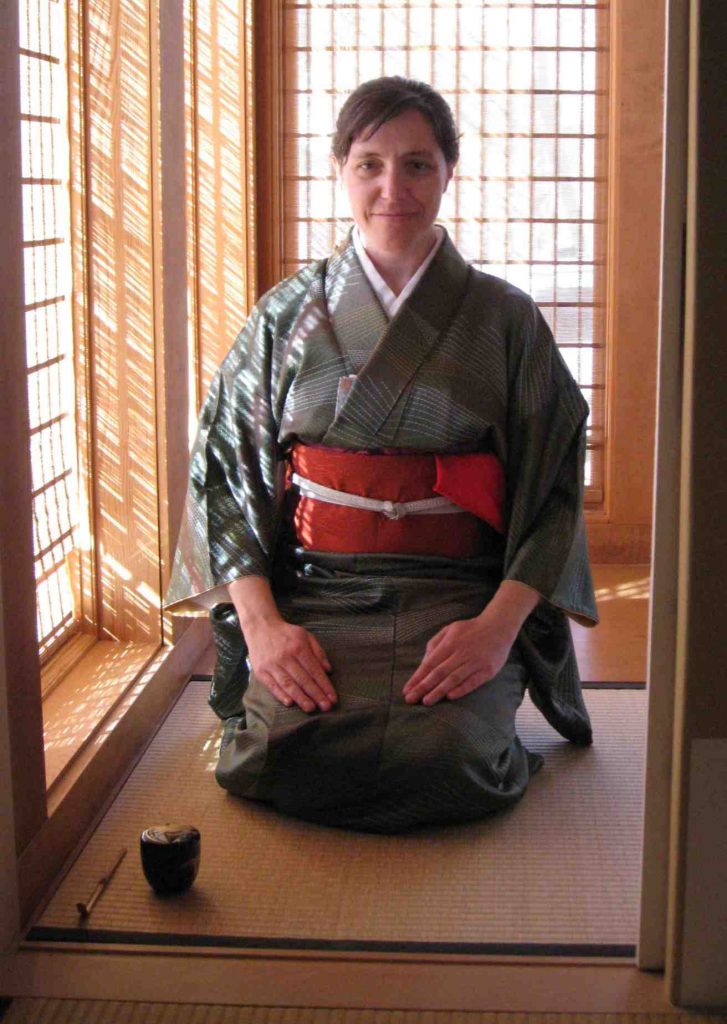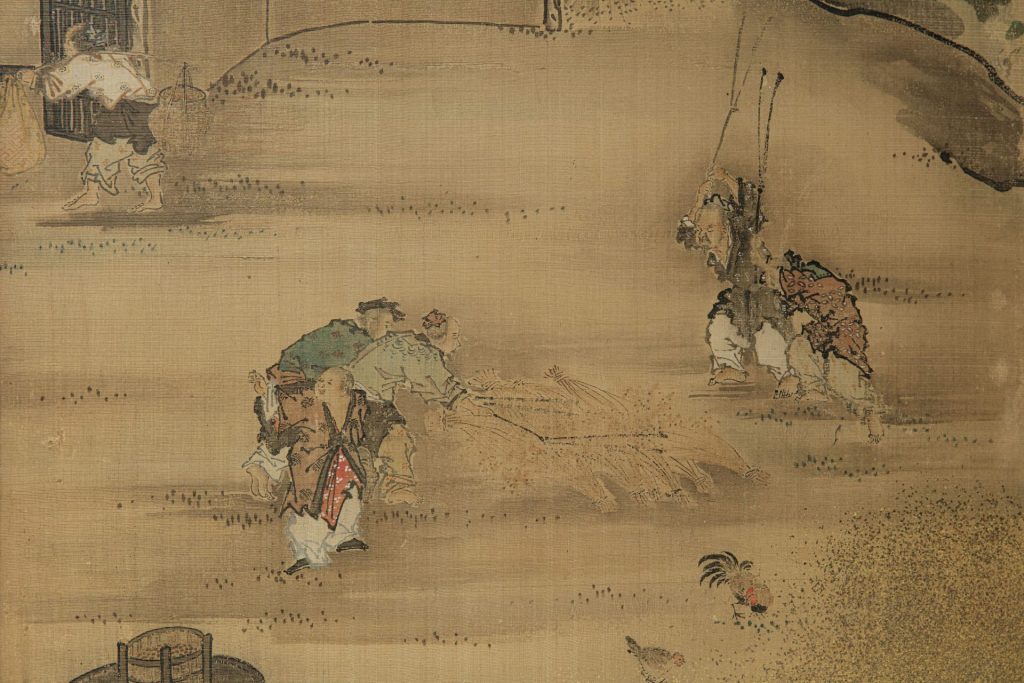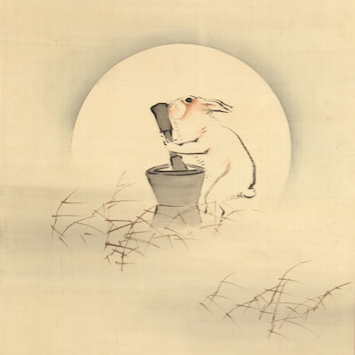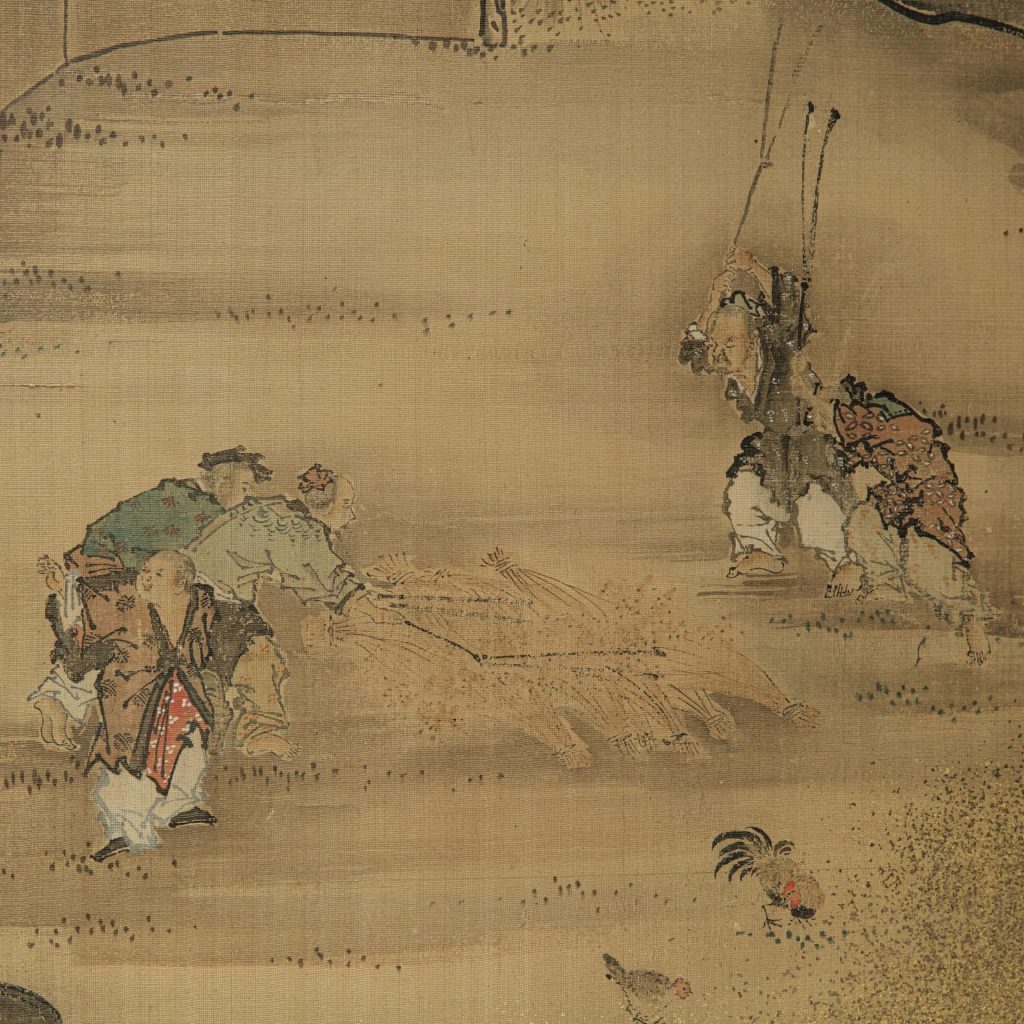
Lively and engaging images of urban and rural workers populate the works of art created during the Edo (1615-1868) and Meiji periods (1868-1912) on view here. In idealized scenes created to confirm governmental authority and societal stability, as well as in closely observed records of individuals undertaking specific tasks, the lives and labors of workers in pre-modern Japan are the focus of the artists’ attention.
The military rulers of the Edo era, known as shoguns, established a Confucian-based societal hierarchy that governed nearly all aspects of life. This rigid system was based on perceived “moral” contributions to society: the warrior class, which included the shoguns, samurai, and provincial rulers (daimyo) provided leadership and ensured stability; farmers produced the food that nourished the population; artisans created useful goods; and merchants ensured the transfer of those goods and other resources. One of the most important of those was rice. In addition to being a dietary staple, rice also served as the foundation of the Japanese economy: Daimyo measured their wealth by it, samurai stipends were calculated by it, and peasants and agricultural laborers were required to pay their taxes with it.
This emphasis on specific roles of people within society stimulated the creation of art on the theme of the worker and, by extension, the products of their labor. The works on view in this gallery served as symbols of a stable and prosperous society at the time of their creation, and now provide present-day viewers a glimpse—however idealized—into the realm of urban and rural work during the sixteenth to nineteenth centuries in Japan.

Rural Occupations
Kano Tsunenobu (Japanese, 1636–1713)
Ink, color, and gold on silk (detail)
Gift of Kurt A. Gitter, M.D. and Millie H. Gitter
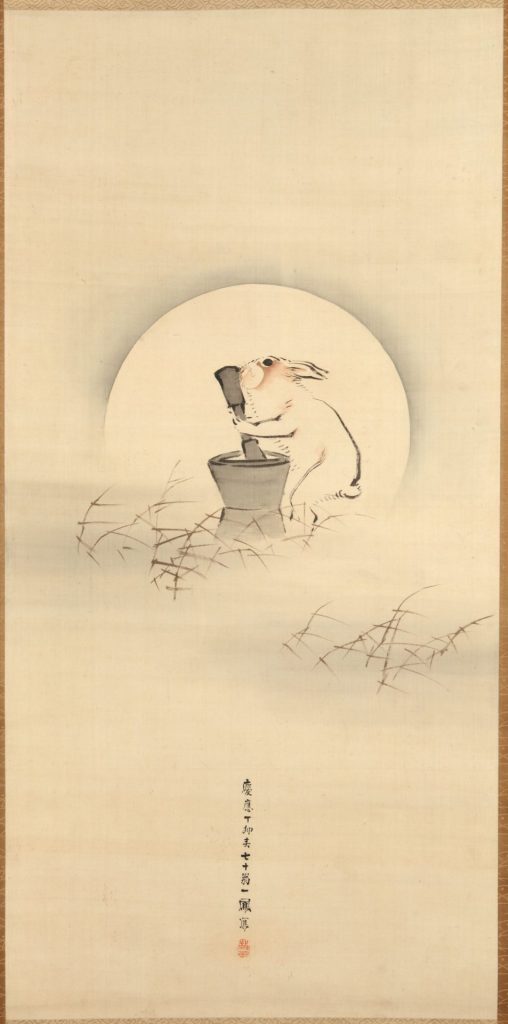
Rabbit Pounding the Elixir of Life Under the Moon
1867
Mori Ippo
Ink and light color on silk
40 1/2 x 20 inches
Museum purchase, Friends of Asian Art
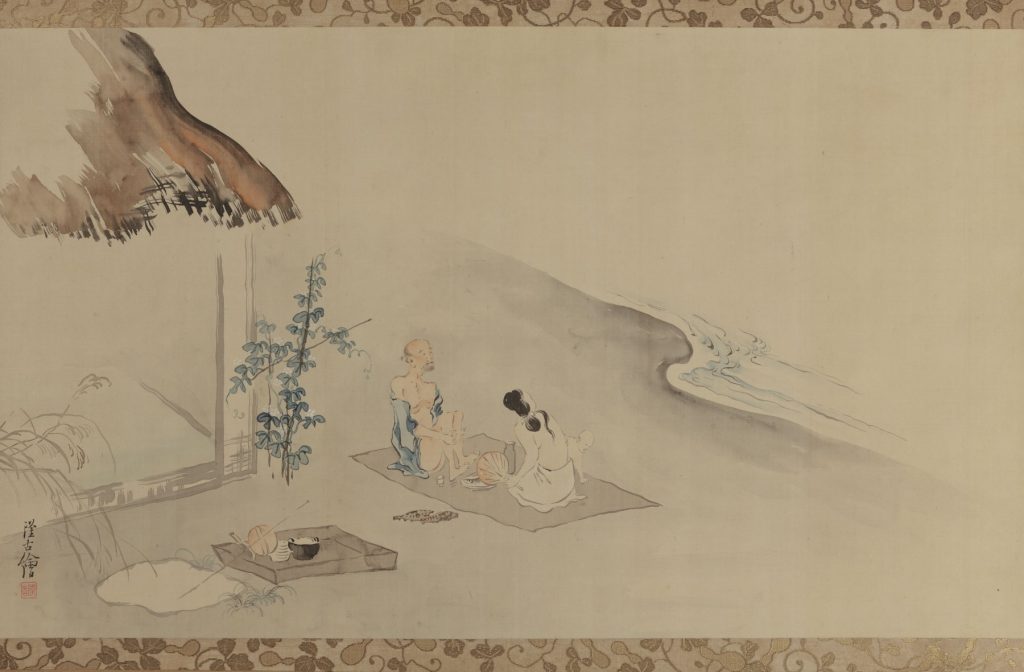
Evening Cool
Takahisa Ryuko (Japanese, 1801–59)
Ink and color on silk
Gift of an Anonymous Donor
